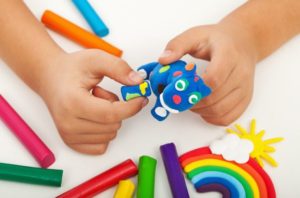AI and superintelligence (2021-present)
For AI and superintelligence research, please see LifeArchitect.ai/integrated-ai/
Intuition and smart people (2016-2021)
For intuition research, please see LifeArchitect.com.au/Connected
Coaching for high-ability children
Coaching is the single most effective tool I’ve found for sustainable, personal change and learning in high-ability clients. Underpinning coaching is the facilitation of learning using deep listening, higher order questioning and inquiry, and the application of appropriate challenge and support. It should be noted that coaching for gifted families strongly endorses the inclusion of parents in the child’s coaching sessions, as parents have influence that may promote behavioural change (Gorczynski & Irwin, 2008).
There are now tens of thousands of peer-reviewed studies and articles about coaching as a standalone field, as well as within the fields of Coaching Psychology, Positive Psychology, and Neuroscience. Coaching for children represents a smaller percentage of this body of research, and coaching for high-ability children is a smaller percentage still.
I’ve also synthesised and compiled a lot of the peer-reviewed, controlled studies and literature on coaching for children (including high-ability children), and where possible, have added to the research base.
Quantitative
The use of the word hope in this context, is defined as the process of (Snyder, 1995, p.355):
- Thinking about one’s goals.
- Agency: the motivation to move toward those goals.
- Pathways: the ways to achieve those goals.
Hardiness in this context is composed of three components (Kobasa et al, 1985):
- Commitment: the ability to be deeply involved in or committed to the activities in one’s life.
- Control: the belief that one can control or influence the events experienced in life.
- Challenge: viewing the changes in one’s life as exciting rather than as threatening.
The following quantitative outcomes have been found for coaching for children:
- Increased confidence, motivation, and activity (Powers et al, 2001).
- Potential for building resilience and wellbeing in youth, as well as a positive effect on students coached, increasing their goal setting, motivation, and achievement (Campbell & Gardner, 2005).
- Significant increases in levels of cognitive hardiness and hope, significant decreases in depression (Green et al, 2007).
- Significant positive impact on student behaviours, hope scores of the intervention group increased significantly (Rolo & Gould, 2007).
- Increased test scores, and has potential value with youth in supporting educational goals. Increased hope and enhanced examination performance. In addition, Sandwell’s performance improved above local and national trends (Passmore, 2009).
- Significant increases in the students’ self-reported levels of engagement and hope (Madden et al, 2011).
- A significant increase in wellbeing, total trait hope, cognitive hardiness, and a significant decrease in depression, anxiety and stress… a significant increase in perceptions of successful striving towards personal goals. Scores on personal goal commitment, academic goal striving and academic goal commitment demonstrated a trend towards increased success (Dulagil et al, 2016).
- More linguistically complex answers (syntactically sophisticated language) in young gifted children… may be a valuable stimulus for young gifted children (Walsh, 2017).
Qualitative
Additionally, Grant (2017) has found these qualitative outcomes for coaching:
- better work/life [school/life] balance.
- better relationships with family.
- greater sense of purpose in life and awareness of personal values.
- feeling better about themselves and life in general.
- participants reported they were able to use personal insights from the coaching sessions in other areas of their life.
Dansinger (2000) has found these qualitative outcomes for coaching with children:
- More sustainable achievement outcomes than psychological evaluations, parent consultation, or counselling.
- Organisational and study.
- Test preparation and test taking.
- Achievement motivation and commitment to learning.
- Anxiety management for test taking.
- Time management and scheduling.
- Goal setting and career planning.
- Note taking.
- Risk taking and perfectionism reduction.
- Assertiveness training, advocacy, and communication skills.
- Self esteem and confidence building.
- Attention to task and work completion.
- Problem solving and conflict resolution.
- Peer relations and relating with other gifted friends.
- Coping with frustration and expression of feelings.
- Social competence and maturity.
- Transferring learning into daily practice.
- Accepting a preference for a challenge, intellectual curiosity, and independent mastery without teacher dependency.
- Self directed learning and good work ethics.
- Creative thinking and leadership.
- Developing effective learning styles.
- Awareness of various classroom settings.
- Learning the culture and process of the classroom.
- Advocating for and facilitating change.
- Recognising non rational behaviour.
- Building feelings of mastery.
- Finding meaning, self-actualisation, and greater balance in life.
References, Further Reading, and How to Cite
References
Campbell, M.A., & Gardner, S. (2005). A pilot study to assess the effects of life coaching with Year 12 students. In M. Cavanagh, A, Grant, and T. Kemp (Eds.), Evidence-based coaching. (pp. 159-169). Brisbane: Australian Academic Press.
Dansinger, S. (2000). Academic Coaching for the Gifted Learner. (Eric Document Reproduction Service No. ED 444 278).
Dulagil, A., Green, S., Ahern, M. (2016). Evidence-based coaching to enhance senior students’ wellbeing and academic striving. International Journal of Wellbeing, 6(3), 131-149. doi:10.5502/ijw.v6i3.6
Gorczynski, P., Morrow, D., & Irwin, J. D. (2008). The impact of co-active coaching on physically inactive 12 to 14 year olds in Ontario. International Journal of Evidence Based Coaching and Mentoring, 6(2), 13–26.
Grant, A. (2017). The contribution of qualitative research to coaching psychology: Counting numbers is not enough, qualitative counts too. The Journal of Positive Psychology: dedicated to furthering research and promoting good practice, 12(3), 317-318.
Green, L.S., Grant, A.M. & Rynsaardt, J. (2007). Evidence-based life coaching for senior high school students: Building hardiness and hope. International Coaching Psychology Review. 2(1), 24-32.
Kobasa, S. C., Maddi, S. R., Puccetti, M. C., & Zola, M. A. (1985). Effectiveness of hardiness, exercise and social support as resources against illness. Journal of Psychosomatic Research, 29(5), 525-533. http://dx.doi.org/10.1016/0022-3999(85)90086-8
Madden, W., Green, L. S., & Grant, A. M. (2001). A pilot study evaluating strengths-based coaching for primary school students: Enhancing engagement and hope. International Coaching Psychology Review. 6(1), 71-83.
Passmore, J. & Brown, A (2009). Coaching non-adult students for enhanced examination performance: a longitudinal study. Coaching: An International Journal of Theory, practice and research. 2(1), 54-56.
Powers, L. E., Turner, A., Westwood, D., Matuszewski, J., Wilson, R., & Phillips, A. (2001). TAKE CHARGE for the Future: A Controlled Field-Test of a Model to Promote Student Involvement in Transition Planning. Career Development and Transition for Exceptional Individuals 24 (1), 89 – 104.
Rolo, C. & Gould, D. ( 2007). An intervention for fostering hope, athletic and academic performance in university-student athletes. International Coaching Psychology Review, 2(1), 44–61.
Snyder, C. R., Harris, C., Anderson, J. R., Holleran, S. A., Irving, L. M., Sigmon, S. T., … Harney, P. (1991). The will and the ways: Development and validation of an individual-differences measure of hope. Journal of Personality and Social Psychology, 60(4), 570-585. http://dx.doi.org/10.1037/0022- 3514.60.4.570
Walsh, R.L. (2017). Are we asking the right questions? Young Gifted children and higher order thinking. Proceedings of the Teachers Guild of NSW 2015-2016.



